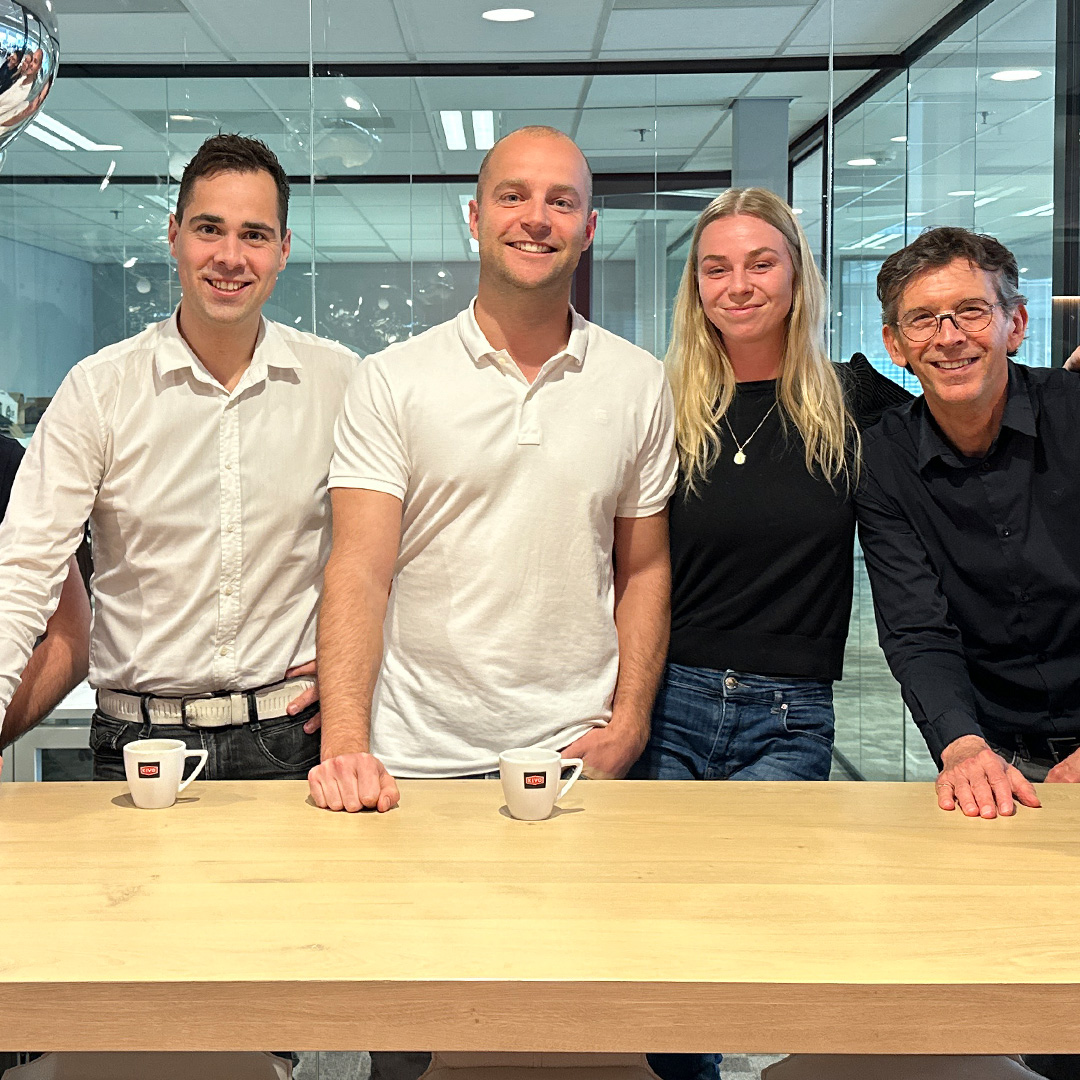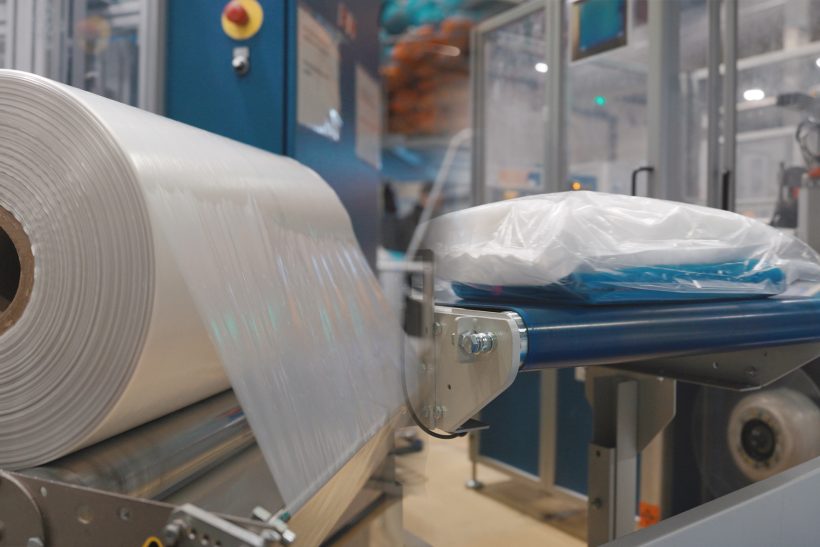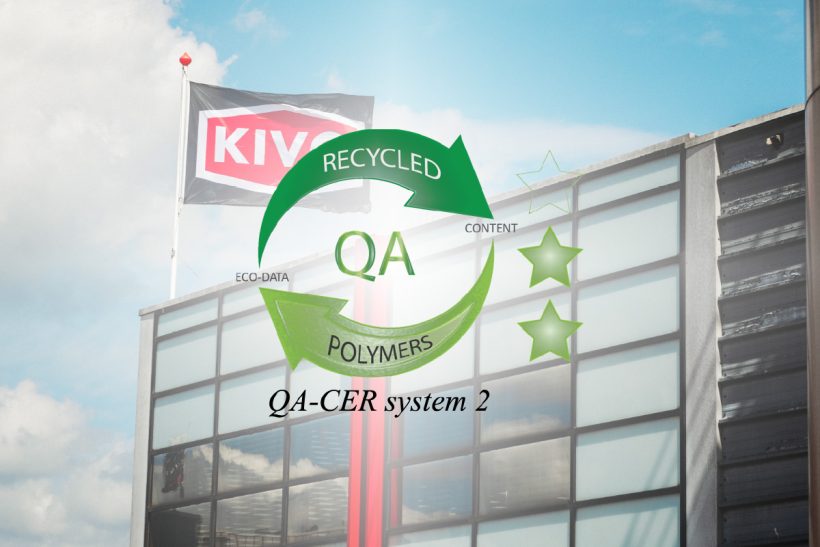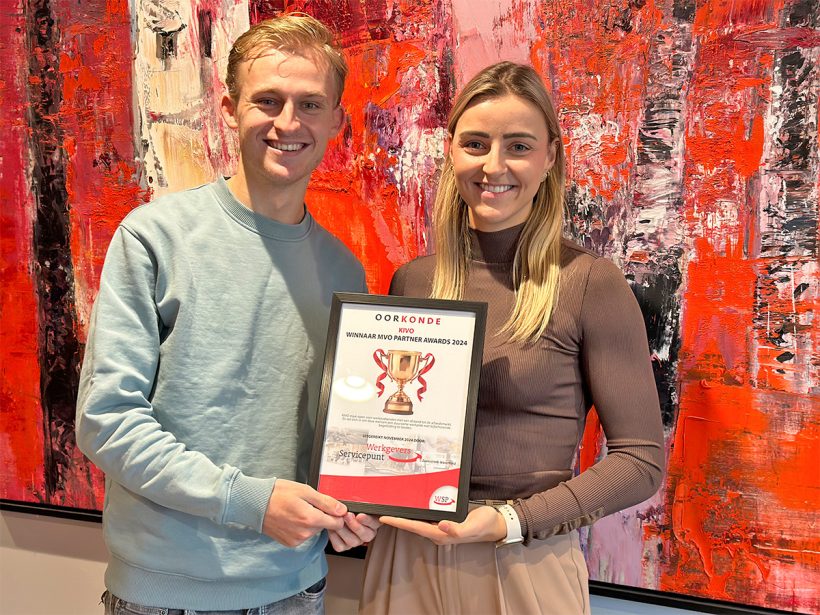Innovation through minimisation and integration of recycled materials
At KIVO, we strongly believe that packaging solutions should be environmentally friendly, without compromising on performance or functionality. Our customer Spotta, the largest distributor of advertising leaflets in the Netherlands, thinks the same way. This article shows how KIVO has achieved a sustainability win for Spotta with modifications in the production of its plastic packaging.
Background
Spotta has always been committed to preventing and reducing the environmental impact of both their products, their own process and organisations they work with. The importance of sustainability is visible in their recent initiatives such as InMijnBus, which allows households to choose to receive a leaflet package specially curated for their neighbourhood, a personally curated leaflet package or to receive no leaflets at all. This initiative helps reduce the amount of unwanted printed material, leading to less paper waste and lower CO2 emissions.
The challenge
Despite Spotta's efforts to reduce paper use, the plastic packaging around the leaflets remained a concern. The plastic ensures the leaflets remain dry and intact, but also contributes to the waste problem.
The solution
KIVO, in collaboration with Spotta, has achieved a breakthrough in reducing the thickness of plastic packaging. Through innovative production techniques and materials, it has managed to reduce the thickness of the plastic film by as much as 60%. This is a significant step forward because every micron reduction on a large scale means a significant reduction in the use of raw materials.
In addition, the new film composed of 25% recycled plastic (PCR). This is not only a win for the environment by reusing these more sustainable materials, but also contributes to the circularity of the product. This is because the packaging itself is also 100% recyclable.
Impact of this innovation
The reduction in thickness and integration of recycled plastic have an impressive impact on the packaging's carbon footprint. Spotta saves 320,000 kg of CO2 emissions annually (verified by a LCA study from CE Delft), corresponding to the benefits of planting about 14,400 trees.
Future vision
These developments are part of a broader strategy by KIVO to continuously improve the sustainability of their products, in line with our Sustainability Proposition 2.0. KIVO aims not only to meet current standards but also to anticipate future challenges in the packaging industry and act proactively on them.
Conclusion
The collaboration between KIVO and Spotta shows how companies can not only reduce their environmental impact through innovation and embracing sustainable initiatives, but also set a standard within the industry. This case study proves that functional efficiency and sustainability can successfully combine.



